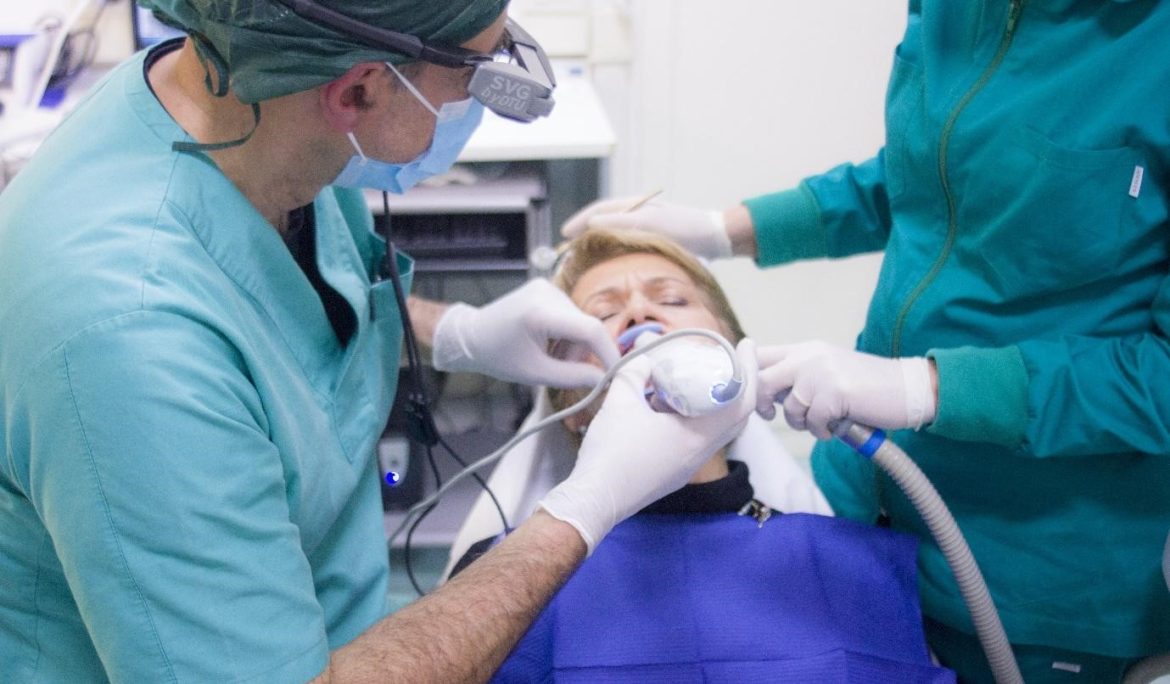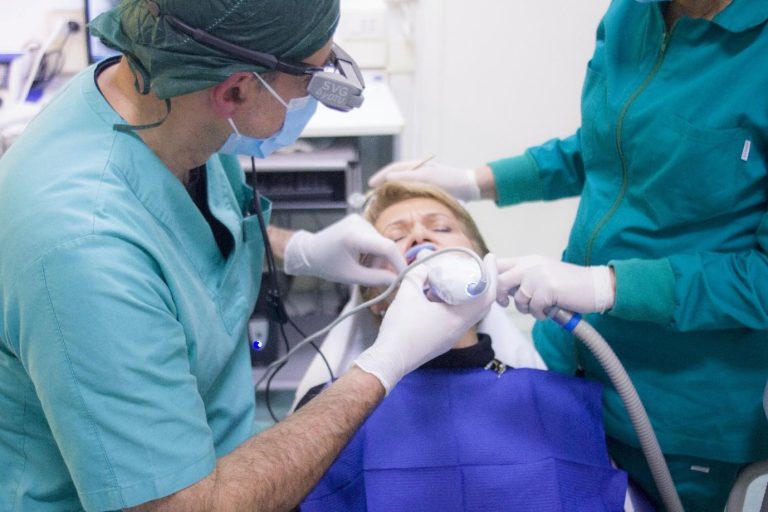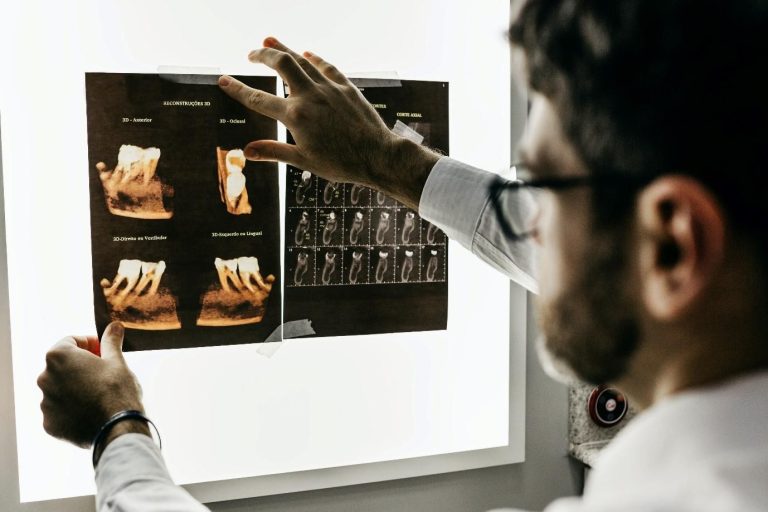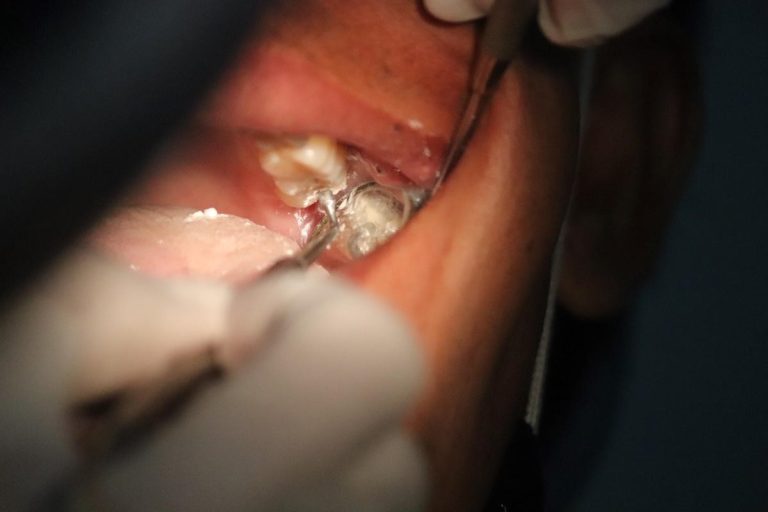What is root canal treatment?

What is root canal treatment?

You may have heard about the root canal, a simple explanation for this is the removal of the infected and/or dead nerve tissue (called pulp) and bacteria from the canals contained within the tooth. The death of infection of the pulp (nerves) within the tooth occurs due to the decay from the outer teeth layers reaching the nerves (pulp) causing pain and can lead to the swelling. The aim of the procedure is to save the tooth that is infected and prevent removal.
Advancements in techniques and technology have helped make root canals evolve into simple and easy treatments that often require one or two trips to the dentist.
Procedures Involved in Root Canal Treatment
1. At first, patients have to undergo an x-ray for the dentist to examine and locate the infected tooth. Once it’s done, the dentist will utilize local anaesthesia in the to-be-treated area for numbing the region. A rubber sheet is then placed around the affected tooth to ensure that the area is dry.

2. Thereafter, using a very small tool such as a small drill, your dentist accesses the inside of the tooth by creating an opening in the tooth’s top surface. He will use the small files to clean the damaged and diseased pulp from within the tooth and to shape the inner areas of the tooth and its root. And then, the dentist will irrigate the chamber with saline and certain anti-microbial solutions to kill remaining bacteria and reduce infection.
3. Once the chamber is cleaned thoroughly and dried, it is closed off with a cotton dressing and temporary filling. Then a material called gutta percha is placed within the cleaned canals. This is usually done on the 2nd or 3rd visit depending on the status of the infection healing. It’s a call taken by the dentist as to when to fill the canals with gutta percha. However, once this is done as filling is placed on the tooth.
4. In a few weeks’ time, the dentist will complete the treatment by placing a permanent crown or a similar type of restoration on the tooth. To provide additional stability to the crown, the dentist may also place minute supporting posts inside the root chamber.
Who is eligible for root canal treatment?
Dentists usually recommend root canal treatments to patients whose teeth and the pulp below it are deeply infected. The pulp inside the tooth can become infected with bacteria, either because of an injury or because of a severe, untreated cavity. If left untreated, the infection can become so severe that the tooth has to be removed.
Acute pain in the teeth when chewing food or when pressure is applied could be one of the signs you need a root canal treatment and so is oversensitivity to hot or cold food. That said, there are multiple other signs such as swelling of tooth gums near the area where it aches, and darkening of tooth.
Who is not eligible for the treatment?
A person is not eligible for undergoing a root canal if he/she is suffering from hypertension, diabetes, osteoporosis, fever and any other autoimmune diseases. You will also be deemed ineligible for the root canal surgery by the doctor, if you are on blood thinning medications.
After Procedure

Paying special attention in maintaining oral hygiene by regularly brushing and flossing your teeth is critical after a root canal treatment. This includes brushing your teeth twice a day with a toothpaste that helps absorb calcium in teeth and stops them from the formation of cavities. You may also need to book an extra appointment to visit your dentist to scan the treated tooth and ensure that there are no signs of infections. Visiting the clinic twice a year for dental cleanings and examinations are usually recommended.
When it comes to consuming food, it is advisable to avoid any crunchy foods that you think would damage the area, at least for a few days after the treatment.
Just in case if you have had a temporary filling, there are chances for the filling to dwindle between your next appointments with the dentist. In such a setting, you should consult the doctor immediately.
Recovering time after root canal treatment
After undergoing root canal treatment, many people do not feel any discomfort after a couple of days. However, for some it may take a bit longer. Usually, it takes at least seven days for you to completely recover from a root canal procedure. And after the crown has been placed, it’s likely to get accustomed to it within a couple weeks.
Is the Result Permanent
The result of a root canal treatment is considered to be permanent and can stay healthy for the rest of your life, if the treatment is done properly.
Bay Avenue Dental Centre is a leading dental facility in Dubai that offers patients the absolute latest and the best in dental technology. From a simple crown to a complete smile makeover, we ensure that your new teeth look absolutely natural and shining.
To book an appointment, call us at +971 04 2770247 | +971 055 1465512 or visit our website.



